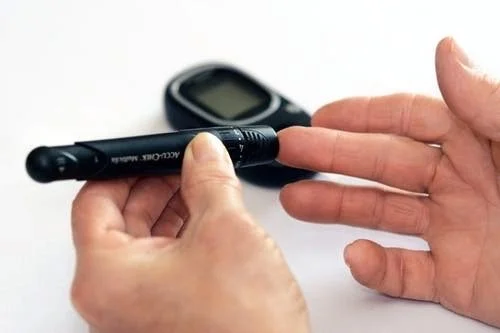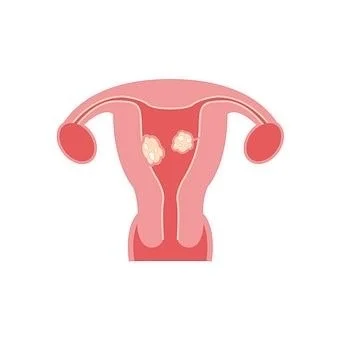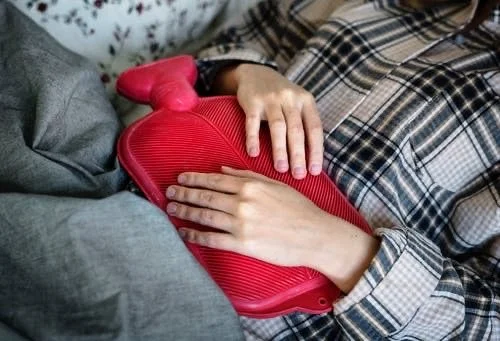More than 38 million Americans have been diagnosed with Type 2 Diabetes and an additional 97 million are prediabetic. It is estimated that more than 8 million others remain undiagnosed. How could this serious condition have gotten so out of hand and yet affect so many people? Partly because it has no symptoms, especially in the early stages.
Read MorePerimenopause refers to the stage in a woman’s life that precedes menopause, which is determined to be when menstruation has stopped for at least 12 months. The average age of menopause is 51 years old, but the period leading up to that, perimenopause, typically begins in the mid-40s, sometimes earlier-- and occasionally much earlier! Perimenopausal symptoms can be disruptive and distressing, especially for women who are not anticipating them.
Read More(Yes, this is a pomegranate, somewhat similar to but easier to look at than, a polycystic ovary).
10% of all women of child-bearing age have it, along with 75% of women with irregular periods, and it is the most common cause of female-associated problems with infertility. So if you have been diagnosed with it, you have lots of company.
Read MoreMigraine headaches are not rare: it’s estimated that 14-15% of the global population currently suffers from them, making migraines one of the top 10 reasons for doctor visits. Those of us who have actually suffered from migraines belong to an exclusive club-- one where life and the rest of the world stops while we have a headache.
Read MoreAre you among the estimated 50-70% of women who experience breast pain? This is a surprisingly common condition that is more likely to affect women who are premenopausal or perimenopausal. Described as a heavy, dull ache or soreness, or a stabbing, burning pain-- however it feels, it’s really bothersome!
Read MoreA homeopathy teacher of mine once said that whatever our body makes, it can un-make. If true, this is encouraging for women suffering with fibroids, benign growths of fibrous tissue growing in or near the uterus that are usually harmless but can sometimes become large and very bothersome. And there are a lot of us, I had them too at one point: more than half of pre-menopausal women do and most don’t ever know it. As you will see, fibroids are often associated with hormone imbalance, so directly addressing this can lead to a positive outcome.
Read MoreMenstrual pain is extremely common, but it’s often not reported at doctor visits. Why is this? Perhaps women just accept menstrual pain as part of the burden of being female, or we don’t expect our pain to be taken seriously, or maybe we are too embarrassed to talk about it. (There is a lot of ancient lore and superstition in many cultures associated with the female menstrual cycle). Period pain can be extremely debilitating for between 2 and 29% of women: the reason for that huge spread is that many women don’t report it.
Read MoreWhen considering changes that need to be made in order to have a healthy lifestyle, nutrition, physical exercise and sufficient sleep are usually the first things that come to mind. But stress management can also play a critical role. This is because of the many ways that chronic stress undermines good health.
Read MoreHyperthyroidism is a set of conditions that result in overactivity of the thyroid, a butterfly-shaped gland located in the front of the neck below the Adam’s apple. This is the opposite of hypothyroidism (or thyroid underfunction), which is far more common. Hormones produced by the thyroid affect many important body functions including lipid metabolism and carbohydrate metabolism, growth, the cardiovascular system and the reproductive system.
60 to 80% of hyperthyroidism cases result from Grave’s disease, an auto-immune condition that tends to run in families, occurs more often in women and frequently peaks between 20 and 40 years of age.
Read MoreBreastfeeding a baby can be a satisfying experience, healthy for both baby and Mom. But the joy of this experience can be quickly thwarted by mastitis, a relatively common, painful and debilitating acute infection of the breast that affects between 10 and 30% of breastfeeding women. With the right care mastitis can often resolve on its own, but if neglected it can lead to a more serious infection, and can also cause women to prematurely stop breastfeeding because of the pain and discomfort.
Read MoreFor most women, “that time of the month” or the days leading up to it are not their favorite. But menstruation is a sign of our ability as a species to reproduce, which is why the absence of a monthly period (“amenorrhea”) in girls and women from about 16 to 45 years old who are not pregnant is a health problem.
Read MoreFor most women it’s a fairly predictable event that is easily incorporated into daily life. And then there are others-- about 30% of women-- who experience periods that are not predictable and cause major disruption, not only to daily life but to special events, vacations, etc..
That said, irregular periods occur normally at certain times during a woman’s lifetime. When the period starts, typically between 10 and 15 years old, it can take several years to become established as a regular pattern. Of course, menstruation also stops during pregnancy and often remains suppressed during breast-feeding as well. Finally, irregular periods also occur leading up to the time of menopause.
Read More












